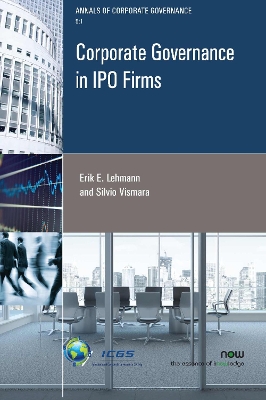Annals of Corporate Governance
1 total work
Corporate Governance in IPO Firms encompasses theories and concepts analyzing, judging and describing financial decisions in entrepreneurial firms and draws on positive and normative aspects of entrepreneurship. In a positive way, this monograph describes these phenomena in aspects of governance issues in IPO firms, and why and how governance structures shape the behavior, the boundaries and the performance of these firms. In a normative way, this monograph offers concepts on how institutions and mechanisms should be designed and work to optimize a respective goal or performance associated with the IPO of an entrepreneurial firm. Corporate governance mechanisms in IPO firms differ from the traditional corporate governance issues in several ways. First, an IPO confronts the founder-manager of the firm with the trade-off between obtaining additional resources to sustain future growth and profits and maintaining total control of the company. Secondly, this constitutes a trade-off for investors between the expected returns of a risky investment and the agency costs associated with moral hazard and adverse selection effects caused by imperfect and asymmetric information. Thirdly, analyzing IPOs offers insights into how these agency costs are priced by investors at the point in time that these costs occur. Fourthly, of difference is which governance mechanisms are at work at this initial stage of a company's lifecycle. Finally, analyzing corporate governance issues in IPO's offers additional insights on the macro level and reveals country-specific differences.
